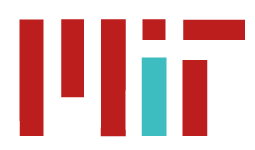
When we look at today’s schools as a system, it is easy to see that one important component of that system is assessment, and that in order to improve the whole system, we must have assessments that work well with all other components. In recent years there has been a push for instruction to become more student-centered and engaging, but we have not seen as much of an attempt to transform assessment in these same ways. Unless we change how students are assessed in today’s education system, we won’t see a significant change in the system as a whole. For this reason, assessment is a key leverage point that can have a significant impact on how students learn in schools. Building on years of research experience in game-based learning and assessment, and with support from members of the Education Arcade and Game Lab, researchers in the Playful Journey Lab are well positioned to innovate on the assessment experience for teachers, learners, designers, and other stakeholders.
The core principle of our work is that both creating and implementing assessments should be playful and authentic. If learning is fun, as it can and should be, then there’s no reason the fun should stop when the assessments come out. In many cases these should be formative assessments that are woven throughout learning experiences rather than interrupting the flow of an activity. They should be authentic in that the interactions feel relevant and students know why they are using them. A well-designed assessment should be seen as a tool to help students learn and progress, rather than as a threat or ultimatum. Designing these tools as performance assessments is key as they should put learners in situations where they must use their skills and demonstrate their abilities, rather than simply answer questions about them. In this way, the assessments can track a variety of skills beyond traditional content knowledge. In order for these playful, authentic performance assessments to be successful, educator competency is of utmost importance. Teachers need to understand where assessment data is coming from, how to interpret it, and how to act on it, and even be able to adapt ideas to create their own playful assessments. Our work expands beyond the student experience of assessments, to support the entire assessment ecosystem.

